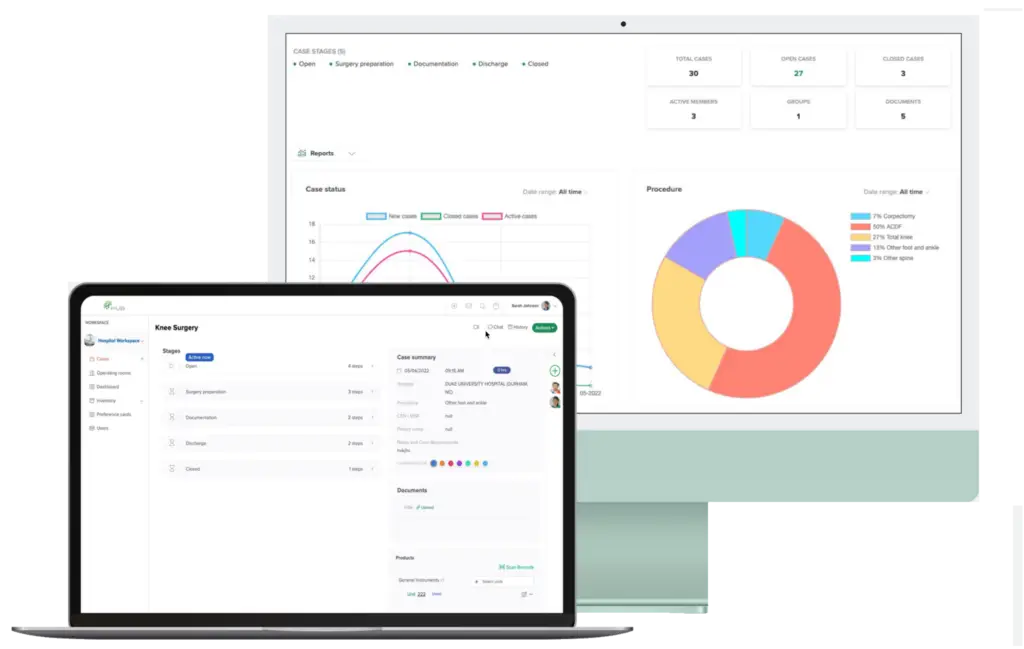Effective cross-site capacity management in healthcare is essential for optimizing resources, reducing costs, and improving patient outcomes. By efficiently managing resources across multiple facilities, healthcare providers can ensure that patients receive timely and appropriate care, even during peak demand periods. This article explores the importance of cross-site capacity management, strategies for implementation, and the benefits of leveraging technology in this critical area.

Introduction
In today’s complex healthcare environment, managing capacity across multiple sites is a daunting task. Facilities must balance the demand for services with available resources, all while maintaining high standards of care. Cross-site capacity management addresses this challenge by coordinating resources and patient flow across different locations. This approach not only enhances operational efficiency but also ensures that patients receive the best possible care without unnecessary delays.
Why Cross-Site Capacity Management Matters
Cross-site capacity management is vital for several reasons:
- Optimized Resource Utilization: By managing resources such as staff, equipment, and beds across multiple sites, healthcare organizations can ensure that no facility is overburdened while others are underutilized.
- Improved Patient Outcomes: Timely access to care is crucial for patient outcomes. Effective capacity management helps reduce wait times and ensures that patients are seen promptly.
- Cost Efficiency: Reducing inefficiencies and bottlenecks can lead to significant cost savings. Proper capacity management minimizes the need for costly overtime and reduces the risk of resource wastage.
- Enhanced Coordination and Communication: Managing capacity across sites requires robust communication and coordination, leading to better teamwork and streamlined operations.
Key Strategies for Effective Cross-Site Capacity Management
1. Centralized Scheduling and Resource Allocation
Centralized scheduling systems allow healthcare providers to allocate resources dynamically based on current demand and availability across all sites. This ensures that resources are used efficiently and patients are directed to the most appropriate facility.
2. Real-Time Data Analytics
Leveraging real-time data analytics is crucial for effective capacity management. By continuously monitoring resource utilization, patient flow, and demand trends, healthcare organizations can make informed decisions and adjust capacity as needed.
3. Predictive Modeling
Predictive modeling tools can forecast demand based on historical data, seasonal trends, and other factors. These insights help healthcare providers anticipate surges in demand and proactively adjust resources and staffing levels.
4. Flexible Staffing Models
Implementing flexible staffing models, such as float pools and per diem staff, allows healthcare facilities to quickly adjust to changing demand. This flexibility is essential for managing peak periods and ensuring adequate coverage across all sites.
5. Collaboration and Communication
Effective cross-site capacity management requires seamless communication and collaboration among all stakeholders. Regular meetings, shared platforms, and clear protocols help ensure that everyone is aligned and working towards the same goals.
The Role of Technology in Cross-Site Capacity Management
Healthcare Analytics Platforms
Advanced healthcare analytics platforms, such as HUB Healthcare, provide comprehensive tools for managing capacity across multiple sites. These platforms integrate data from various sources, offering real-time insights and predictive analytics to support decision-making.
Electronic Health Records (EHR) Integration
Integrating EHR systems across sites ensures that patient information is readily accessible, enabling coordinated care and efficient resource allocation. EHR integration also supports continuity of care, as patient histories and treatment plans are available to all relevant providers.
Automated Communication Systems
Automated communication systems streamline the coordination process by sending real-time updates and alerts to staff regarding capacity changes, patient transfers, and resource needs. This ensures that everyone is informed and can respond promptly to changing conditions.
Benefits of Effective Cross-Site Capacity Management
- Enhanced Patient Experience: Patients benefit from reduced wait times, timely access to care, and improved outcomes.
- Operational Efficiency: Facilities operate more smoothly with optimized resource utilization and reduced bottlenecks.
- Cost Savings: Efficient capacity management reduces the need for costly overtime, temporary staff, and resource wastage.
- Improved Staff Satisfaction: Better-managed workloads and clear communication improve job satisfaction and reduce burnout among healthcare staff.
- Scalability: Effective capacity management systems can easily scale to accommodate growth or changes in service demand.
Conclusion
Cross-site capacity management is a critical component of modern healthcare operations. By implementing strategies such as centralized scheduling, real-time data analytics, predictive modeling, and leveraging advanced technology platforms like HUB Healthcare, organizations can optimize resource utilization, enhance patient care, and achieve significant cost savings. Effective capacity management not only improves operational efficiency but also ensures that patients receive the highest quality of care across all facilities.

How HUB Healthcare Can Help
HUB Healthcare offers a comprehensive solution designed to enhance communication in healthcare, streamline care coordination, and improve overall workflow efficiency. Our platform includes features such as medical case management software, healthcare document management, and healthcare analytics to ensure that all aspects of patient care are optimized. By leveraging HUB Healthcare’s robust tools, organizations can reduce workflow bottlenecks, automate repetitive tasks, and facilitate better collaboration among healthcare providers. This not only improves work quality but also enhances patient outcomes, making HUB Healthcare an essential partner in achieving healthcare excellence. Care coordination and health equity





